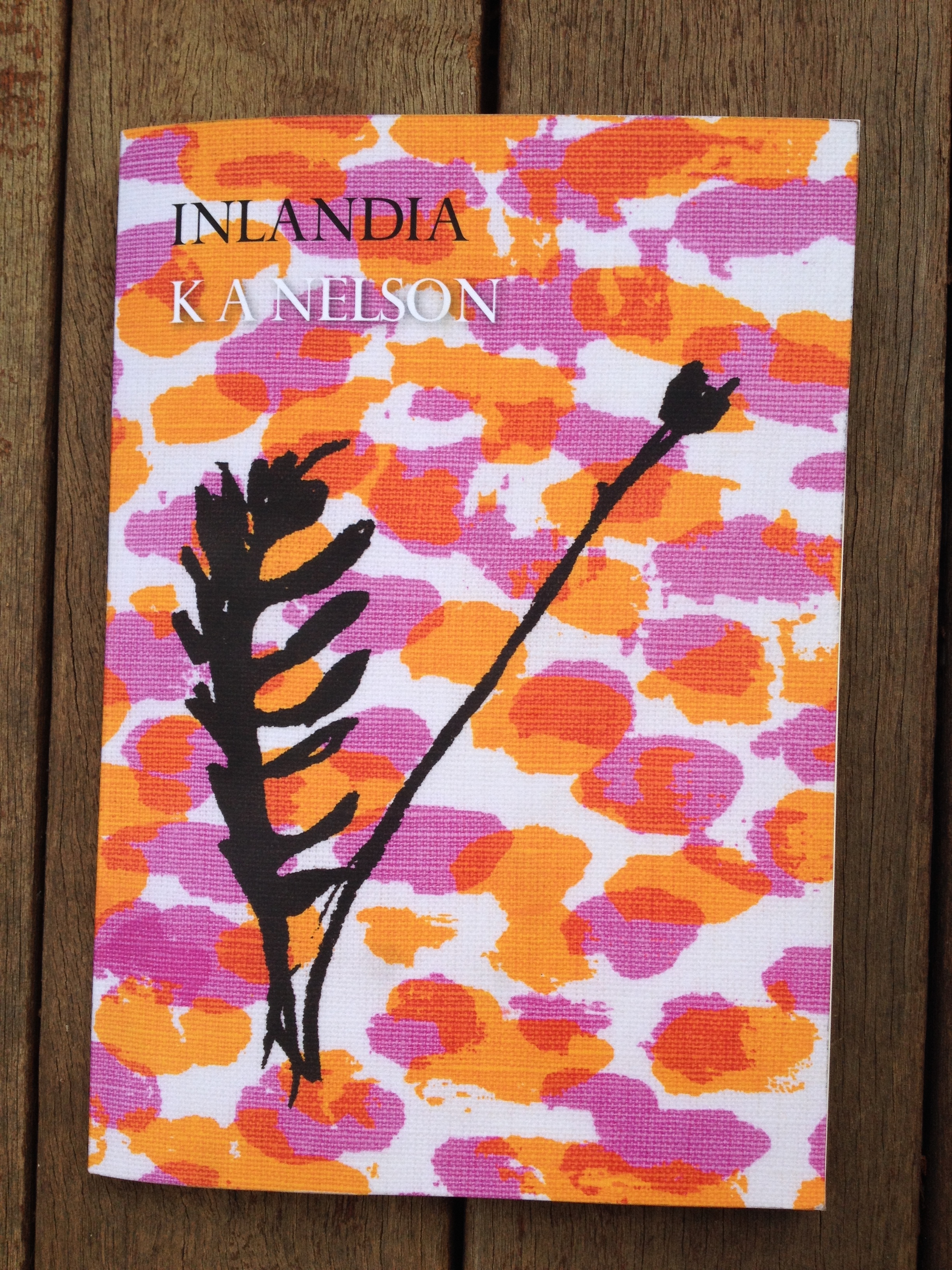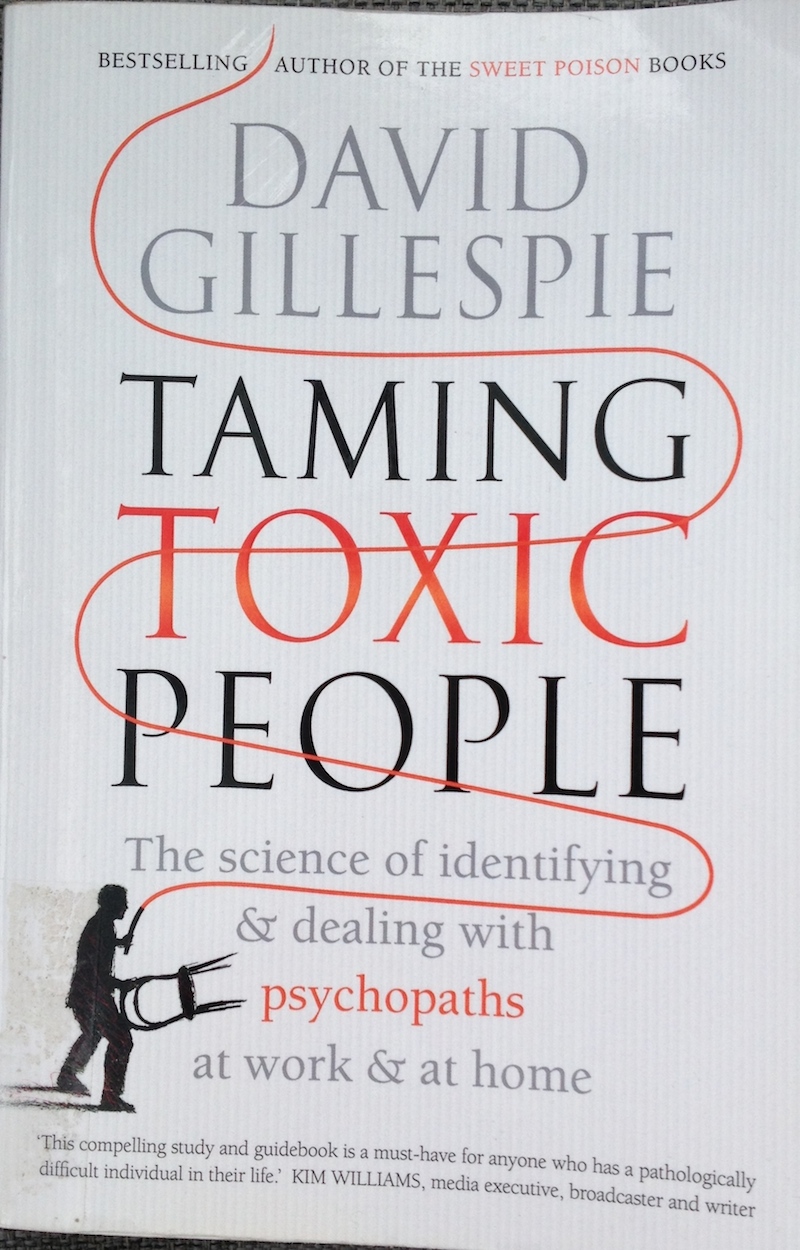I’m always driven by curiosity and apart from work these past few weeks I’ve been spreading my brain too thinly across a vast variety of stimulating books. In the time it takes to write a blog I could have read another book or two. With so many fascinating books piled up – and some jumping up and down, clamouring ‘Pick me! Pick me!’ because they’d be due back at the library soon – I just continued to read my way through the pile in my spare time instead of writing blog posts.
But no regrets and I’m in the Slow Blogging camp (after being one for some time, I discovered that there is actually a formal association for Slow Bloggers – see https://www.nytimes.com/2008/11/23/fashion/23slowblog ). So I make no apologies and below I reflect on the three best of my recently read books, each of which deserves its own post: K. A. Nelson’s Inlandia (Recent Work Press, 2018); John Clanchy’s Six (Finlay Lloyd, 2014, and a La Muse Books E-book); and David Gillespie’s Taming Toxic People (Macmillan, 2017).
Inlandia by K. A. Nelson
‘Caress your sentence tenderly: it will end by smiling at you.’
Anatole France wrote that and this is clearly how Nelson writes, with the result that the reader smiles at her beautiful sentences all through this poetry book. There’ll be laughing and some tears too because it’s that rare kind of book, one that is moving and profound, intimate and generous, one whose honesty and wit will leave you feeling as if you’ve just made a new friend.
The subjects of the poems are simple and could be summed up by Freud’s ‘Love and work – what else is there?’ In Nelson’s ‘Something like a prayer’ the narrator shares with us the low hum of anxiety as she goes through the day’s domestic and physical tasks while a close friend is having major surgery. ‘Tying up Loose Ends’ is a chilling poem set after the ending of a relationship.
There are many that made me laugh, for example, ‘Fridge Magnets’ and ‘Questions for a prospective lover’. Listen.
‘Questions for a prospective lover’
for Laura
Do you take medication?
Are you a sport or gym junkie?
Do you smoke? What’s your poison?
Do you love your mother?
Did you and your father get along?
Sibling rivalry: is there some?
Have you been married before?
Are there children involved?
Ages? Do you see them often?
Is the relationship with your ex-wife
Civilised or are you in the Family Court?
Are you seeing another woman (or man)?
Questions aside, the acid test will be
If you know as much about me
As I know about you, after this coffee.
‘Jobs I would never apply for’ is funny too and quietly builds up to its last stanza with a power that made goose-bumps blossom all over my arms and legs.
In ‘Water, like art’ the narrator looks at a Degas painting of a bathroom nude and with subtle humour compares sanitary conditions of 1880s Paris with those of our often drought-stricken Australia, and we follow the evolution of the narrator’s observations to their conclusion, as unexpected as it is profound.
You should just go out and buy Inlandia. You don’t even have to go out – get it from here – www.recentworkpress.com
I know: you don’t have time to read poetry. Me either. But if we read one poem a day it only takes a minute or so and our lives will be expanded and our humanity deepened, not to mention having a good laugh some days.
And remember, read it aloud to gain the full impact. Re-read it. We all tend to skate over the surface of things too much these days but slowing down to read a poem aloud will let us appreciate language and life more deeply. It is this book that has compelled me to revisit an old neglected resolution to read one poem a day. While you wait for K. A. Nelson’s book to arrive, you could start with Jeanette Winterson’s poetry blog – http://www.jeanettewinterson.com/poetry/
Six by John Clanchy
Clanchy uses language like a poet. I read Six when it was first published and the second time around the stories make an even deeper impression. Reading (and re-reading) is a powerful experience because of the precision of the author’s words and the originality of his vision. Lyrical descriptions of place paint vivid pictures of landscape – and also produce an intense feeling of the interior states of his characters because we see the world the way they are seeing it.
The author has a finely honed gift for transporting the reader into the consciousness of his characters, all vulnerable in their different ways. They are flawed, frightened, generous, brave, selfish, funny, loving, loveable and inconsistent, as we all are.
The variety of voices in this collection is virtuosic. The longer than usual length of these short stories allows time for full character development and for twists and turns in the unpredictable plots.
From the first page the reader is drawn into the worlds of authentic characters such as the rebellious daughter with a fresh piercing, visiting her terminally ill father in ‘The day her father died ’. Every nuance of this fraught relationship is conveyed.
In ‘Vigil’ a Police Officer struggles with the breakdown of his marriage. A former bank teller in ‘Slow Burn’ puts up an almighty struggle with a terrible dose of man flu, escalating in his mind to SARS or worse and resulting in a comically disastrous shopping trip in his dressing gown and even more inappropriate footwear to exchange a toaster. In ‘House of Cards’ we read, intrigued, as we get to know a family who face some surprises in their father’s will.
We care about these characters. The surprises in each character’s story are anything but arbitrary, arising from the motivations and values of these particular people. Disparate plot twists dovetail in the end with an emotionally satisfying feeling of inevitability yet one which we never saw coming.
Metaphors arise organically too, as in the scene at the end of ‘Vigil’ where the Police Officer takes his son on an unsuccessful lake shore fishing trip. (Spoiler alert coming!) His son cries out that his mother’s new boyfriend has a boat and they can always get to the plentiful fish at the centre of the lake. We wince as his father’s realisation (accurate or not, objectively) that he can’t give his son what he wants hits home on a number of levels.
Powerful metaphors arise in ‘Daddy’s Girl’ too, a strangely suspenseful story; somehow one doesn’t expect suspense in a tale of tragic loss, or at least not in this one.
The short story form is a difficult one to excel in. Only a handful of stories survive the test of time. Somerset Maugham’s ‘Rain’ comes to mind and all of Chekhov’s, Charlotte Perkins Gilman’s ‘The Yellow Wallpaper’ and D. H. Lawrence’s ‘The Rocking Horse Winner’.
But it’s common to feel disappointment at many contemporary short stories that present a slice of life, then rather than end, just seem to peter out. John Clanchy’s short stories belong firmly in the former group of classics. You won’t forget them. John Clanchy’s website is at JohnClanchy.com
You can buy a hard copy of Six from Finlay Lloyd (available at over 40 independent book shops or from the publisher at finlaylloyd.com ) and a Kindle version, published by La Muse Books – see lamusebooks.com – from Amazon – http:www.amazon.com .
David Gillespie is a national treasure, or should be. He writes like an angel about the devils (like Big Sugar and psychopaths) that beset contemporary society. If you want practical advice and profound insights in clear language Gillespie is your man. (Just don’t read his books, specially the sugar ones, on public transport – you’ll be laughing out loud and it’s embarrassing). His latest book covers the theory and management of psychopaths and how they operate in different societies.
In cooperative societies where people share and look out for one another and where concepts we used to hold dear like the Common Good still function, psychopaths have a hard time fitting in. They have to pretend to be what they’re not in order to manipulate people and get what they want. But in our contemporary society, with de-regulation of financial institutions and privatisation and corporatisation of nearly everything, they thrive. Ambitious, charming, fast-talking high fliers are admired, at least at first. Gillespie explains why psychopathic behaviour is so common in our society.
‘We now value the individual more than the group. We now value the look of success over the reality of achievement. And we have slowly but surely removed the societal rules and structures which provided roadblocks to the psychopath.’ (p. 209)
In the race to compete with others, narcissistic behaviour becomes common and having a social conscience becomes a disadvantage. ‘In contemporary society, the author writes, empathetic people ‘are the sub-normals. And being a psychopath is a distinct advantage. Having a brain unfettered by moral constraints or empathy makes you a winner, and probably even the president.’ (p. 231)
Gillespie has a big-picture vision and he also presents in this book step-by-step practical advice to people who are dealing with psychopaths at work or in other places.
His websites are at davidgillespie.org and www.howmuchsugar.com
The riskiness of Art
Being immersed in the simple beauty of words that pack a punch has been an exhilarating ride and made me recall something Jeanette Winterson once wrote: ‘The riskiness of Art, the reason why it affects us, is not the riskiness of its subject matter, it is the risk of creating a new way of seeing, a new way of thinking.’
Are Gillespie’s books art? Some would argue that they’re journalism. I reckon that his entertainingly dextrous style with its expression of deep humanity lifts his work to a higher level – not that there’s anything wrong with journalism when it’s good – and I dislike squeezing things into rigid categories anyway, when everything in life seems to be overflowing its boundaries with a healthy, democratic inter-connection.
David Gillespie is an original thinker, like my other two favourites above, K. A Nelson and John Clanchy. Like them, Gillespie has contributed something beautiful and profound to this troubled world and that counts as art for me.



Leave a Reply